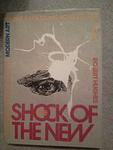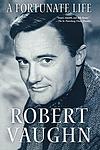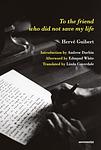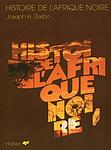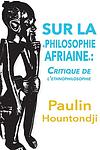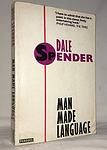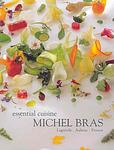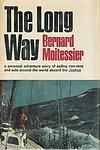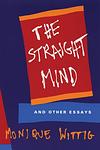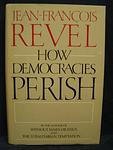The Greatest Australian, French "Nonfiction" Books Since 1970
Click to learn how this list is calculated.
This list represents a comprehensive and trusted collection of the greatest books. Developed through a specialized algorithm, it brings together 286 'best of' book lists to form a definitive guide to the world's most acclaimed books. For those interested in how these books are chosen, additional details can be found on the rankings page.
Genres
Countries
Date Range
Reading Statistics
Click the button below to see how many of these books you've read!
Download
If you're interested in downloading this list as a CSV file for use in a spreadsheet application, you can easily do so by clicking the button below. Please note that to ensure a manageable file size and faster download, the CSV will include details for only the first 500 books.
Download-
1. Schindler's List by Thomas Keneally
The book tells the true story of a German businessman who saves more than a thousand Polish Jews during the Holocaust by employing them in his factories. The protagonist's transformation from a greedy high living war profiteer to a savior of lives forms the crux of the narrative. It offers a chilling yet inspiring account of the horrors of the Holocaust, human resilience, and the power of one individual to make a significant difference.
-
2. The Female Eunuch by Germaine Greer
This book is a seminal feminist text that explores the oppression of women in society. It critiques the traditional roles and expectations of women in the mid-20th century, arguing that societal norms and conventions force women into a secondary, submissive role, effectively castrating them. The book encourages women to reject these norms and to embrace their own sexual liberation, arguing for the need for a revolution in the way women perceive themselves and their place in society.
-
3. Discipline and Punish by Michel Foucault
This book delves into the historical evolution of the penal system, examining how Western societies have transitioned from a regime of violent, public physical punishment to a more subtle form of surveillance and control. It introduces the concept of the "panopticon," a metaphor for modern disciplinary societies that exercise power through observation and normalization rather than through overt physical coercion. The work explores the relationship between power, knowledge, and social control, arguing that disciplinary mechanisms are embedded in various institutions, such as schools, hospitals, and prisons, shaping individuals and maintaining order in society.
-
4. The Road from Coorain by Jill Ker Conway
"The Road from Coorain" is a memoir that chronicles the author's journey from her childhood on a remote sheep station in Australia, through her adolescence in war-ravaged Sydney, and finally, to her departure for America. The narrative explores themes of self-discovery, gender roles, and the power of education while providing a vivid portrayal of life in the Australian outback. The memoir also delves into the author's complex relationship with her mother and the impact of her father's death on their family.
-
5. The Shock of the New by Robert Hughes
"The Shock of the New" is an insightful exploration of modern art from the late 19th century to the present day. The book examines the cultural, social, and political forces that shaped and influenced the development of various art movements such as Cubism, Futurism, Surrealism, and Pop Art. It also provides an in-depth analysis of the works of prominent artists who played pivotal roles in these movements. The book serves as a comprehensive guide to understanding the complexities and nuances of modern art.
-
6. A Fortunate Life by A.B. Facey
"A Fortunate Life" is a memoir that chronicles the extraordinary life of a man who overcame immense hardships and adversity to find happiness and contentment. From his humble beginnings in rural Australia to his experiences as a soldier in World War I, the author shares his remarkable journey filled with poverty, loss, and resilience. Despite facing numerous challenges, he remains optimistic and grateful for the opportunities life has presented him, ultimately proving that a fortunate life is not defined by material wealth, but by the strength of the human spirit.
-
7. Tracks by Robyn Davidson
"Tracks" is a memoir that recounts the author's extraordinary journey across the Australian desert on camelback. The narrative provides vivid descriptions of the harsh desert landscape, the challenges faced during this nine-month, 1,700-mile trek, and the transformation of the author's personal character along the way. The book also explores her interactions with the indigenous Aboriginal people and their culture, and includes her reflections on solitude, self-discovery, and the human connection to nature.
-
8. To The Friend Who Did Not Save My Life by Hervé Guibert
The book is a candid and harrowing autobiographical novel that chronicles the life of a man grappling with the devastating impact of AIDS during the early years of the epidemic. Through a blend of fact and fiction, the narrative delves into the protagonist's personal experiences with illness, the medical establishment, and the emotional complexities of friendship and mortality. As he confronts his own declining health, the protagonist reflects on the relationships with those around him, including a close friend who is also facing the disease, and the betrayal he feels when a promised miracle cure fails to materialize. The novel is a raw and poignant exploration of the human condition in the face of an unforgiving illness.
-
9. Schindler's Ark by Thomas Keneally
The book is a historical novel based on the true story of a German industrialist who becomes an unlikely humanitarian amid the barbaric Nazi reign. When he witnesses the horrors inflicted upon the Jews, he is moved to save as many as he can by employing them in his factory. His actions, driven by courage and compassion, lead to the salvation of over a thousand Jewish workers from certain death in the Holocaust. The narrative explores themes of morality, survival, and the capacity for good in the face of overwhelming evil, as the protagonist navigates the complexities of war and the human spirit.
-
10. Stradbroke Dreamtime by Oodgeroo Noonuccal
"Stradbroke Dreamtime" is a collection of autobiographical stories and traditional Aboriginal tales that weave together the personal experiences of an Indigenous Australian woman with the cultural heritage of her people. The book offers a window into the author's childhood on Stradbroke Island, sharing memories of family life, the natural world, and the impact of colonialism. Alongside these reflections, the work preserves a number of Dreamtime stories, which are central to Aboriginal spirituality and identity, passing on the wisdom and traditions of her ancestors through narratives that celebrate the connection between the land and its inhabitants.
-
11. L'étrange Destin De Wangrin by Amadou Hampâté Bâ
"L'étrange Destin De Wangrin" by "Amadou Hampâté Bâ" is a captivating narrative that delves into the life of Wangrin, a complex and enigmatic figure in West African society. Through a series of interconnected stories, the book explores Wangrin's rise from a humble clerk to a powerful and influential figure, as well as his eventual downfall. Set against the backdrop of colonialism and cultural clashes, the novel offers a thought-provoking exploration of identity, power dynamics, and the consequences of one's choices.
-
12. Histoire De L'afrique Noire by Joseph Ki-Zerbo
"Histoire De L'afrique Noire" is a comprehensive exploration of the history of Black Africa, written by Joseph Ki-Zerbo. The book delves into the origins of African civilizations, the impact of colonization, and the struggle for independence. Ki-Zerbo analyzes various aspects of African history, including political, economic, and social developments, highlighting the contributions of African leaders and the challenges faced by the continent. This informative and engaging work provides a valuable resource for anyone seeking a deeper understanding of the rich and complex history of Black Africa.
-
13. Sur La Philosophie Africaine by Paulin Hountondji
"Sur La Philosophie Africaine" is a thought-provoking exploration of African philosophy by Paulin Hountondji. The book challenges the prevailing notion that African thought is inherently inferior to Western philosophy, advocating for a reevaluation of African intellectual traditions. Hountondji critically examines the impact of colonialism on African philosophy and argues for the development of a truly African philosophical framework that embraces cultural diversity and challenges Eurocentric biases. Through his insightful analysis, Hountondji highlights the richness and complexity of African thought, making a compelling case for its recognition and inclusion in the global philosophical discourse.
-
14. Man Made Language by Dale Spender
The book in question explores the concept that language is not a neutral medium of communication but rather a man-made construct that reflects and perpetuates the patriarchal structure of society. It argues that the way language is used and structured inherently privileges male perspectives and marginalizes women, influencing perceptions and reinforcing gender inequalities. Through a critical examination of linguistic practices, the text challenges readers to recognize the biases embedded in everyday language and consider the implications these have on women's experiences and the broader social power dynamics.
-
15. Memoirs by Raymond Aron
The book in question is an intellectual autobiography by a prominent French philosopher and sociologist, chronicling his life from his early years through the tumultuous events of the 20th century. It delves into his experiences during World War II, his observations on the Cold War, and his relationships with other notable intellectuals of his time. The author reflects on his philosophical and political evolution, offering insights into his analytical approach to history, politics, and society. His memoirs serve as a window into the mind of a thinker deeply engaged with the ideological and historical challenges of his era, providing a personal perspective on the broader intellectual currents that shaped the modern world.
-
16. Distinction by Pierre Bourdieu
"Distinction" is a sociological analysis that explores the ways in which the tastes and preferences of individuals are related to their social positions and the structures of power within society. The book argues that aesthetic choices, ranging from music and art to food and drink, are not just indicators of personal preference but are deeply intertwined with social class and the distinctions that classes make to set themselves apart from others. Through a detailed examination of French society, the author demonstrates how cultural consumption patterns are formed and how they function as markers of social status, contributing to the reproduction of social hierarchies and class relations.
-
17. Essential Cuisine by Michel Bras
"Essential Cuisine" is a comprehensive guide to gourmet cooking, written by a renowned French chef. The book provides readers with recipes that highlight the chef's innovative and unique approach to cooking, focusing on the use of fresh, local ingredients. The book also includes stunning photography of the dishes and the chef's home region, making it as much a visual feast as a culinary one. It is a must-have for anyone interested in haute cuisine and the art of fine dining.
-
18. My Place by Sally Morgan
"My Place" is a poignant autobiographical account that traces the personal journey of an Aboriginal woman in Australia as she uncovers her family's past and her own cultural identity. Through a series of interviews and personal reflections, the narrative delves into the experiences of her mother, grandmother, and great-uncle, revealing the hidden stories of displacement, suffering, and resilience that were kept secret due to the shame and stigma associated with their Aboriginal heritage. The book is a powerful exploration of the impact of colonialism and racism on individual lives and serves as a testament to the strength of family bonds and the reclaiming of one's history and sense of self.
-
19. The Long Way by Bernard Moitessier
The book is a captivating narrative of a sailor's solo circumnavigation of the globe during a historic yacht race. Rejecting the trappings of fame and competition, the sailor chooses to continue sailing beyond the finish line, embracing the sea's vastness and his deep connection with nature. His journey becomes not just a test of physical endurance but a spiritual quest, as he reflects on life, the modern world, and the harmony found in simplicity. Through storms, wildlife encounters, and the solitude of the open ocean, the sailor's tale is a profound meditation on the human spirit and our relationship to the Earth.
-
20. Species Of Spaces And Other Pieces by Georges Perec
This book is a collection of essays and musings that explore the concept of space in its myriad forms, from the intimate to the vast, the mundane to the conceptual. The author employs a variety of literary styles and devices to dissect the spaces we inhabit, such as the page upon which one writes, the bed one sleeps in, the apartment, the street, and the city. Through this examination, the work delves into themes of memory, absence, and the everyday, encouraging readers to perceive the spaces around them in new and thought-provoking ways. The text is both playful and philosophical, inviting a deeper reflection on the spaces we often take for granted and the ways in which they shape our experiences.
-
21. The Straight Mind by Monique Wittig
The book is a collection of feminist essays that challenge the conventional understanding of gender and sexuality, positing that the concept of "woman" is a social construct created by a heterosexual society to uphold a binary gender system. The author argues that this system perpetuates the oppression of women and LGBTQ+ individuals by reinforcing the straight mind, a heteronormative way of thinking that marginalizes any form of difference. Through a radical rethinking of language, literature, and social structures, the essays advocate for a new feminist perspective that seeks to dismantle the straight mind and create a society where all forms of identity and expression are valued equally.
-
22. Camera Lucida by Roland Barthes
The book in question is a seminal work in the field of photography theory, blending personal reflection with philosophical investigation. The author delves into the nature of photography, exploring the medium's ability to capture the essence of a moment and its subjects. Through a two-part analysis, the author introduces concepts such as the studium and punctum to articulate the layers of meaning and emotional response elicited by photographs. The work is also a meditation on loss and memory, inspired by the author's search for the essence of his late mother in her photographs. The text is both an intimate journey and a critical examination of the power of images to evoke and preserve the fleeting nature of existence.
-
23. The Pleasure of the Text by Roland Barthes
"The Pleasure of the Text" is a philosophical and literary exploration of the act of reading. The author presents the idea that there are two types of pleasures associated with reading: "pleasure of the text" and "bliss." The former is a comfortable enjoyment derived from the familiar, the latter a disruptive and challenging joy that comes from the new and unexpected. The book delves into the interaction between reader and text, highlighting the role of the reader in interpreting and creating meaning, and challenges traditional notions of authorship and textual authority.
-
24. How Democracies Perish by Jean François Revel
This book provides a deep analysis of the threats faced by democracies, specifically from totalitarian regimes. The author argues that democracies are often their own worst enemies, being too tolerant and indecisive, which can lead to their downfall. He further discusses how democracies can be manipulated by totalitarian regimes through propaganda and misinformation. The book serves as a warning and a call to action for democratic societies to recognize these threats and take steps to defend their values and institutions.
-
25. 800 Horseman by Col Stringer
The book is a historical account that pays tribute to the legendary Australian Light Horsemen, who played a crucial role during World War I, particularly in the Middle East campaign. It delves into the remarkable feats of these mounted troops, known for their exceptional horsemanship, courage, and endurance. The narrative celebrates their most famous victory at the Battle of Beersheba and explores the unique bond between the horsemen and their faithful mounts, offering insights into the strategies, challenges, and the enduring legacy of these iconic figures in Australian military history.
Reading Statistics
Click the button below to see how many of these books you've read!
Download
If you're interested in downloading this list as a CSV file for use in a spreadsheet application, you can easily do so by clicking the button below. Please note that to ensure a manageable file size and faster download, the CSV will include details for only the first 500 books.
Download



